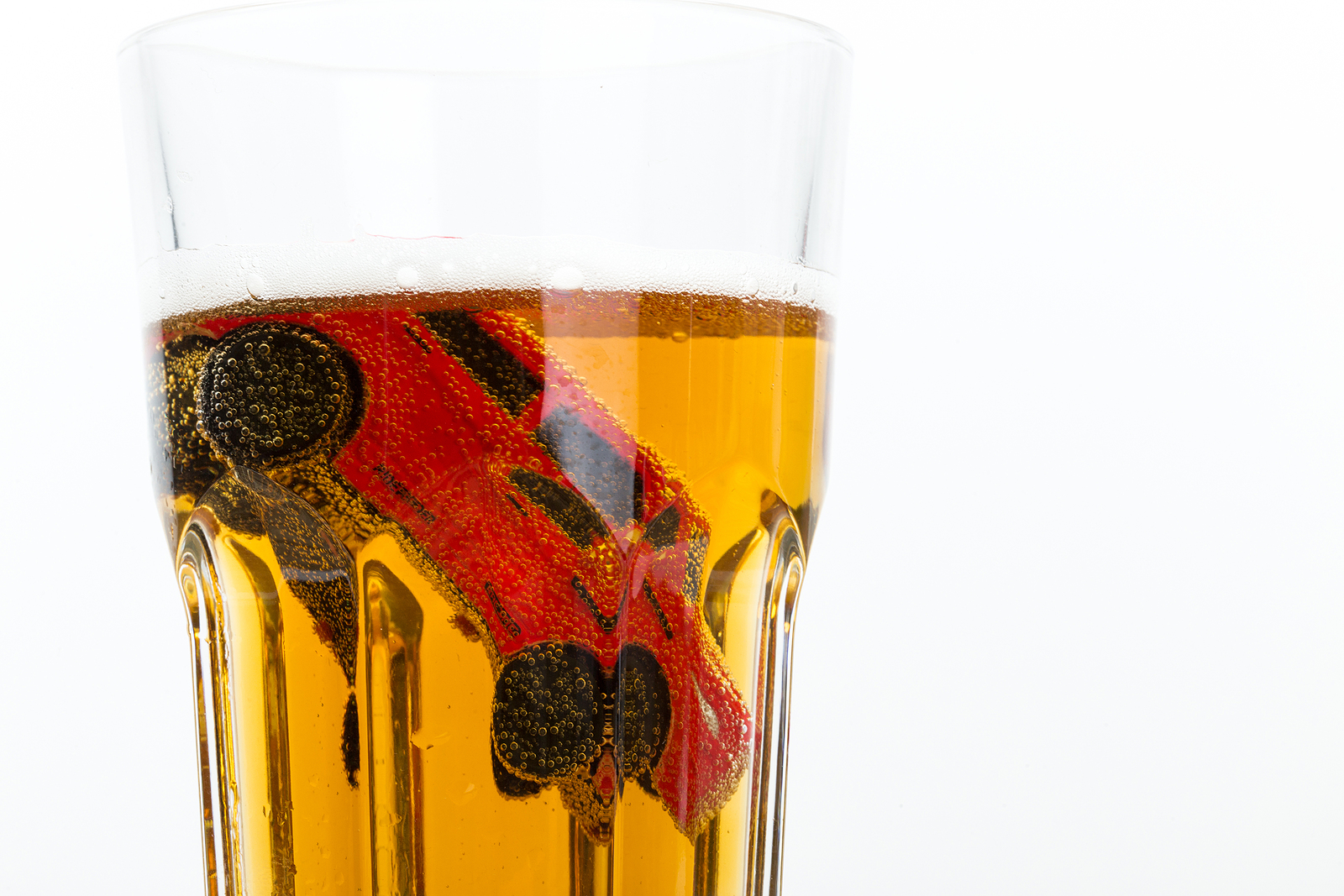When friends hang out drinking and socializing, they don’t always consider what happens when they say goodbye and drive home. Most people never consider the idea of arriving home a day or two later with pending criminal charges. An alcohol buzz easily diminishes any not-so-fun thoughts about what penalties can occur for a first offense DUI.
Law enforcement officials think about DUI scenarios quite often. That’s primarily because they view them from a different perspective. Police officers see how intoxicated drivers cause serious, often fatal, crashes. They prevent these accidents by searching for intoxicated drivers and getting them off the road.
Police officers know that drinking and driving increases after dark. They understand that it’s often a result of people just having fun, but it’s also a crime. They look for erratic, reckless, and distracted drivers and pull them over. They test them and arrest them, knowing that a DUI conviction earns each driver a lifetime of consequences. Of course, that’s the point. Even a first-time offender must deal with harsh DUI penalties.
When a police officer arrests you for a DUI crime, they explain that you have a right to legal representation. When given that option, call a DUI attorney immediately. That’s the only way of ensuring that you have an ally protecting your legal rights.
All States Have Similar DUI Penalty Structures
The National Highway Transportation Safety Administration’s most recent annual statistics show 10,142 fatalities from crashes involving alcohol impairment. The agency’s Drug-Impaired Driving page cites a trauma center study involving accidents with serious injuries or fatalities. Fifty-six percent of the drivers tested positive for drugs. Criminal justice systems nationwide design harsh DUI penalty structures as a deterrent against these types of casualties.
The Governor’s Highway Safety Association Alcohol-Impaired Driving Chart briefly describes the DUI penalties in each state. A first conviction places a driver into a progressive discipline system. Penalties for a first-time conviction seem harsh, but they increase with each subsequent conviction. Penalties also vary based on whether a court finds a driver guilty of a misdemeanor or a felony.
Each state establishes different penalties for first-time DUI sentencing. Different DUI standards and penalties apply to minor drivers. Judges use discretion in assessing penalties based on each case’s circumstances.
Fines
Convicted first-time DUI offenders usually pay a fine.
Some states also assess court costs and surcharges.
- Texas: First-time drivers pay up to $2,000 in fines.
- New York: A first-time driver pays a fine ranging from $300 to $600.
- California: First-time DUI fines range from $390 to $1,000.
- Wisconsin: First-time DUI fines range from $150 to $300. Convicted offenders also pay a $435 surcharge.
Jail Time
First-time DUI punishments often include mandatory jail time. Sentencing structures vary from state to state.
For example:
- Missouri: Up to one year of jail time
- Texas: Up to 180 days
- Ohio: Up to six months
- Arizona: Minimum 10 days jail time
License Suspension
In most states, a first-time DUI charge often includes two types of suspensions.
- Administrative License Suspension: When a person receives a driver’s license, they grant implied consent for alcohol and/or drug testing. If a driver refuses a blood, breath, or urine test when requested, they violate this agreement. Their state’s motor vehicle licensing division automatically suspends their driver’s license. State DMVs also suspend licenses when drivers test positive for alcohol/drugs. Administrative suspensions often include an appeal process for disputing the decision.
- Court-Ordered Suspension: Courts issue suspensions in compliance with criminal sentencing guidelines. It’s a separate process from an administrative suspension. As with other penalties, courts have some leeway with suspension time frames. Some states allow limited driving for work and other reasons.
Alcohol and Substance Abuse Education
Some states require substance abuse and alcohol education after a first offense. In some jurisdictions, DUI offenders receive reduced charges or penalties after completing education programs. Mandatory alcohol and substance abuse education programs often include a drug and alcohol testing component.
Ignition Locking Device
In some states, first-time offenders must pay for an ignition locking device. Before starting a vehicle with an ILD, a driver must pass a breathalyzer test. If they pass, the system unlocks the vehicle’s ignition system. ILD provisions usually mandate installation in all vehicles registered or used by a convicted driver.
State laws include varying ignition interlock requirements.
- ILD installations for first-time and all other DUI crime convictions
- Installation for second and subsequent convictions
- For any DUI conviction involving drinking and driving with a minor in the car
- First-time and subsequent offenders when a DUI conviction involves a high blood alcohol concentration (usually .15 percent).
Community Service
Some states mandate community services as part of a DUI conviction penalty or during probation.
Enhanced Penalties For Certain Situations
Enhanced penalties often include higher fines, greater jail time, vehicle impoundment, license revocation, and others.
All state DUI laws recognize certain circumstances where even a first-time DUI conviction warrants enhanced penalties.
- High Blood Alcohol Concentration (0.15 percent BAC)
- Driving under the influence while under license suspension
- DUI with a minor in the car
- Vehicular homicide or assault
- DUI while committing a felony
- Commercial drivers with a BAC of 0.04 percent. (BAC mandated by the Federal Motor Carriers Safety Administration)
Probation
When a convicted DUI offender finishes their jail time, they must usually complete a probation period. Some sentences allow probation or community supervision instead of jail time. During probation, a probation officer monitors and controls the convicted person’s life. Probation terms dictate what a person does, where they go, and the people with whom they associate. Probation after a DUI conviction often includes substance and alcohol testing and other conditions (such as field sobriety testing).
Life Consequences and Penalties
DUI Penalties don’t usually end after an offender meets their criminal justice system commitments.
A DUI criminal record often interferes with every aspect of a person’s life.
- Employment: Some employers terminate employees with criminal records. Others refuse to hire them.
- Housing: A person convicted of a crime often has difficulty obtaining a mortgage or finding rental housing.
- Public assistance: Government public assistance programs ban convicted felons.
- College rejections: Colleges ask if a person has a criminal record. If so, they often reject their applications.
- Financial Responsibility Filing: In many states, those with DUI convictions must provide an annual SR-22 filing confirming that they have liability insurance or a bond.
- Insurance Issues: Most insurance companies don’t want to insure drivers with DUI convictions. They often cancel or non-renew their policies. Often, only certain specialty or high-risk companies insure people with DUI convictions. Policies usually include high premiums and surcharges.
A DUI Defense Attorney Can Help
If a police officer has arrested you for a DUI crime, you should never face the criminal justice system alone. When you work with a DUI defense attorney, they stand with you throughout the process. A DUI attorney protects your legal rights and helps you create the best defense possible. To Learn more about what an experienced legal team can do for your case read about “Why Hire A DUI Lawyer.” You can also learn what makes a good attorney and how you should go about finding the right DUI lawyer for your case.


